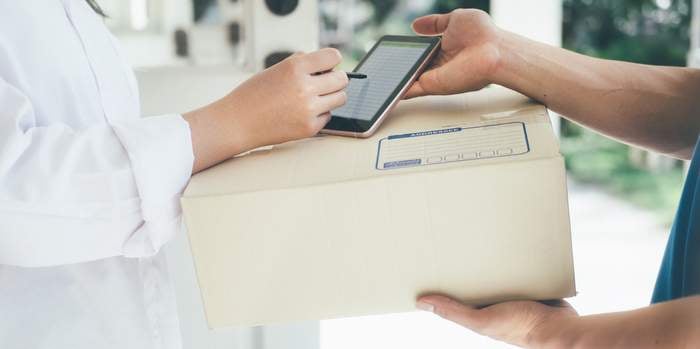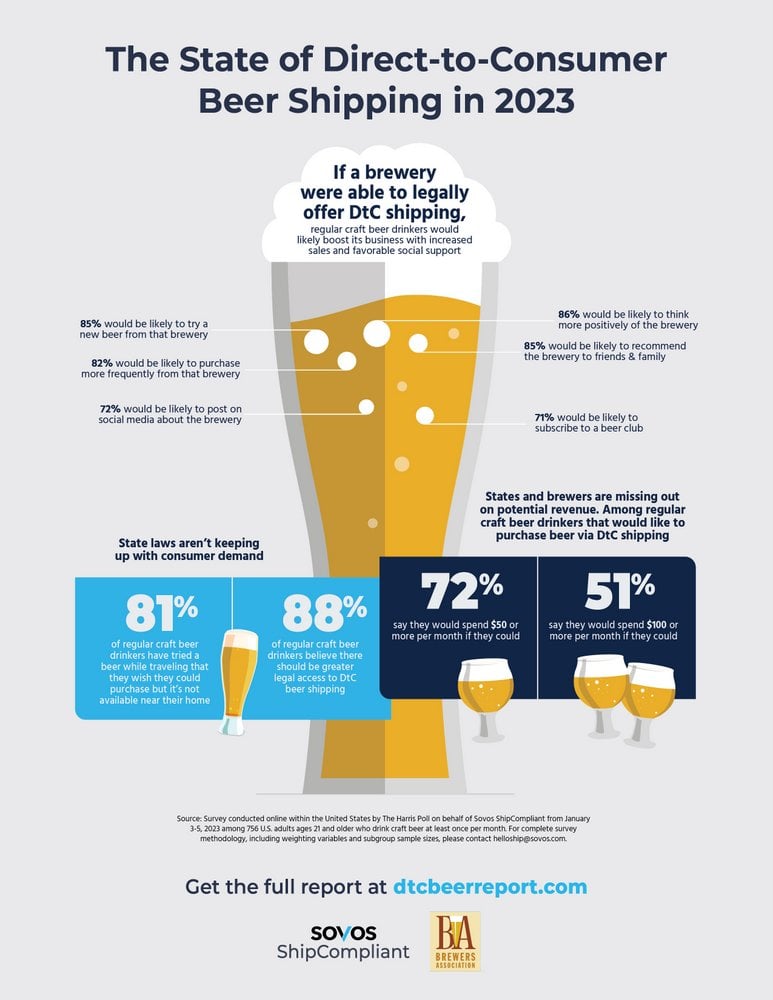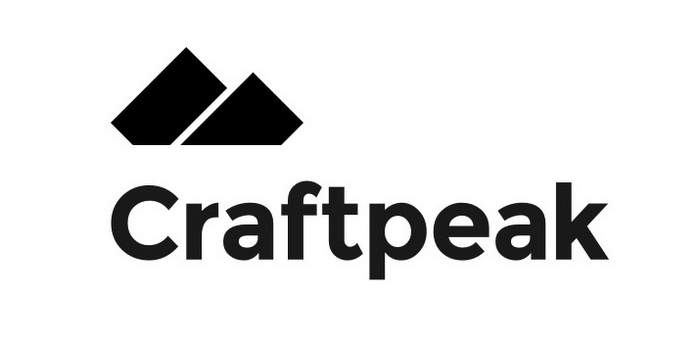
Interest in direct-to-consumer (DtC) beer shipping continues to go up according to the newest Direct-to-Consumer Beer Shipping Report from Sovos ShipCompliant and the Brewers Association.
Actual demand has increased 5.3% since 2022, despite industry challenges and political opposition. Plus, 79% of regular craft beer drinkers would purchase more craft beer if they were able to have it shipped directly to their home, up from 75% in 2022. And that is the main thing holding back demand: Many states still do not allow it.
“The DtC shipping market holds a great deal of interest for regular craft beer drinkers,” said Larry Cormier, vice president and general manager, Sovos ShipCompliant. “We’ve seen a year-over-year increase in demand for trying beer shipped from out-of-state breweries. Results further suggest that breweries could experience positive word of mouth advertising from consumers, leading to increased sales via DtC.”
Sovos ShipCompliant commissioned The Harris Poll to conduct an online survey among 756 regular craft beer drinkers, (defined as Americans ages 21+ who drink craft beer at least once per month.)

What’s holding DtC back?
Currently, there are approximately 9,400 breweries operating throughout the United States. However, DtC beer shipping is only legal in 12 locales (11 states and D.C.). From the Sovos ShipCompliant/Harris Poll survey, 88% of regular craft beer drinkers believe that current beer shipping laws in the U.S. should be updated to make DtC beer shipping legal in more states than it is currently legal in, indicating a need and opportunity for national expansion.
Despite repeated opposition to proposed legislation, industry advocates, producers and craft beer enthusiasts push for expanded permissions as they continue to recognize the opportunity that national DtC beer shipping can bring to consumers, breweries and states. For example, DtC shippers made an estimated $17+ million in taxes in both New York and Washington states in 2022; for California, that number is an estimated $120+ million.
“In sum, the combination of consumer demand—both for craft beer generally and direct shipping more specifically—and the realities of tightening distribution opportunities make direct shipping a sensible route to market for many American small breweries,” said Bart Watson, chief economist, Brewers Association. “The experience from the wine industry and the limited states that currently allow DtC beer shipping underline the success of this model in beverage alcohol, how it complements the three-tier system and the model’s responsibility and compliance.”
Other notable findings in the report
Prevalence of cross-country interest in DtC: 85% (compared to 77% in 2022) of regular craft beer drinkers say the ability to purchase beer via DtC shipping would make them more likely to try beer from out-of-state breweries. Furthermore, 81% of regular craft beer drinkers say they have tried a beer while traveling that they wish they could purchase but it is not available near their home.
A need for expanded regulation: 88% of regular craft beer drinkers believe that current beer shipping laws in the U.S. should be updated to make it legal to ship beer direct-to-consumer in more states than the 12 locales in which it is currently authorized. Because of this, a majority of Americans are unable to take advantage of this convenient purchasing method, indicating that there is quite a bit of missed revenue for both craft brewers and for the states that would tax their shipments. From ShipCompliant customers alone, there was $145 million in taxes paid to states in 2020 – and there is much room for expansion in DtC beer permissions that would undoubtedly increase that number.
Additional impacts direct from consumers: 86% of regular craft beer drinkers say they would be likely to think more positively of a brewery that offers a DtC purchasing option. Additionally, 85% would be likely to recommend that brewery to family and friends, and 72% would be likely to share/post about that brewery on social media.



Leave a Reply
You must be logged in to post a comment.